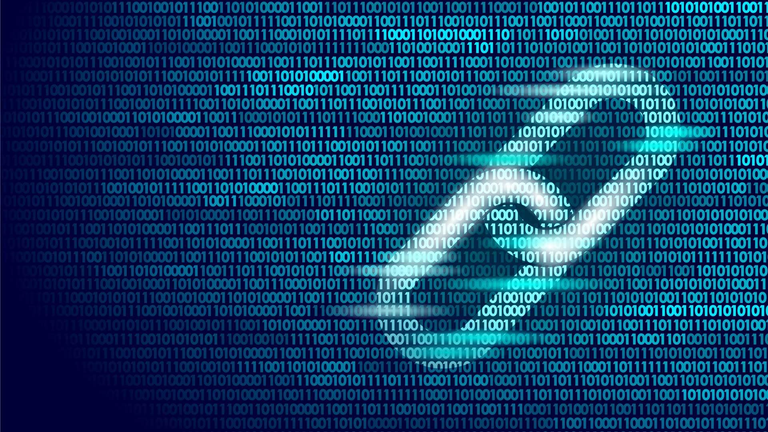
5 Areas that can Revolutionize the Blockchain
Blockchain enthusiasts call technology a revolutionary potential that can change all areas of life. However, as we saw in the ICO hype last year, the use of technology is not always meaningful. For depicting processes via a blockchain may create trust; but at the same time it makes the processes slower. Therefore, in many cases it turned out that a classical database would have been the better solution. Five areas that can revolutionize the Blockchain.
The implementation of blockchain technology is always a compromise between efficiency and trust. The integration of a blockchain makes sense if there is a sufficient demand for automated, forgery-proof processes that justifies the renunciation of the speed of data processing. The areas of application are still diverse, the potential great.
Watch this video on YouTube.
Time to take a look at areas of life where the use of blockchain technology makes sense.
Finance
Except for cryptocurrencies, blockchain technology has the potential to revolutionize finance. In particular, the so-called token economy could ensure that the trading of assets is increasingly digitized. Examples include Security Token Offerings (STOs). Unlike the discredited ICOs, STOs are regulated financial products, or "securities" as defined by stock exchange regulators.
The advantage over classic securities is obvious: By using a blockchain, the transaction costs are reduced considerably. Trading becomes easier and contracts can theoretically be made within seconds.
If you want to know more about Token Economy and spend 45 minutes, this talk by Shermin Voshmgir should be recommended.
Watch this video on Youtube.
Politics
Elections, health care, anti-corruption. The list of areas of use of distributed ledger technology (DLT) in the political sphere can be continued. Finally, the blockchain narrative of anti-counterfeiting of data when used in politics can be fully exploited.
Election forgery is - if properly implemented - simply no longer possible with blockchain-based voting systems. Conversely, this also has a positive effect on the political legitimacy demands of democratically elected governments.
South Korea is currently testing such a blockchain-based voting system.
Identity management
The use of a blockchain in identity management is one of the most promising use cases for the technology. Because entries on a public block chain are forgery-proof. This allows any counterparties to ensure that their counterparty is trustworthy. Furthermore, the stored data are in own hands. Everyone can decide for themselves which personal data you want to disclose.
An example in which the technology already received approval is the Swiss Federal Railways. Rail workers can store data on a block chain. When the employer changes, the migration of data is greatly simplified and the data does not remain on the employer's servers.
Supply
Also, the so-called supply chain management can benefit from the gain in trust through the use of DLT. Producers of conflict-laden goods such as gold or diamonds can express their aspirations for ethical production processes with the help of DLT.
Consumers can view the different stages of the value chain on the public block chain. As subsequent changes to the protocol are block-like, counterfeits are excluded.
However, a major problem of egg-laying woolly milk sowing "Blockchain in supply chain management" still remains: the data may be stored on the blockchain in a forgery-proof manner. Whether an entry but also has factual correctness, you have to prove otherwise. There is always a risk of misuse of the technology, as certain data may already be corrupted before uploading to the blockchain.
The legal system
Hardly any body of justice stands for institutionalized trust like the notary. Sworn notaries certify high volume transactions, manage estates and certified evidence and facts. In short, notaries are required to be independent and must not doubt their integrity.
The same level of security and confidence in data integrity can be achieved with a blockchain. Finally, it can be deposited on the wills. It is also conceivable, an automated testament opening by means of Smart Contract.
The actual implementation of such a system is certainly future music; Technology will not replace the venerable profession of notary for the foreseeable future. Nevertheless, companies like Ubirch show what is possible.
Most importantly, this use case is a prime example of what DLT is all about: creating automated, unassailable truths without relying on the help of a trusted verifying entity.
This is the fundamental value proposition of the technology. To put it in the words of TED keynote speaker Bettina Warburg:
"I think we have to prepare. Because we are about to encounter a world in which distributed, autonomous institutions play a very important role. "
Source
Plagiarism is the copying & pasting of others work without giving credit to the original author or artist. Plagiarized posts are considered spam.
Spam is discouraged by the community, and may result in action from the cheetah bot.
More information and tips on sharing content.
If you believe this comment is in error, please contact us in #disputes on Discord
Interesting reading
Great post thanks for sharing @grobsop I resteemed it